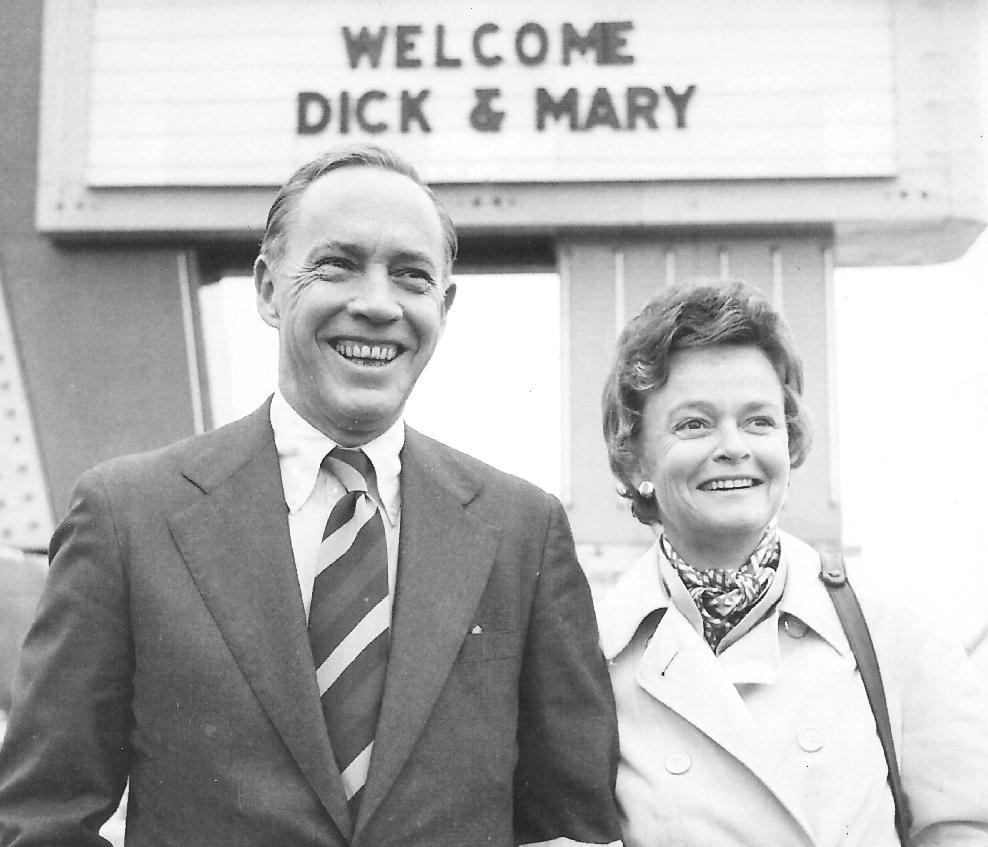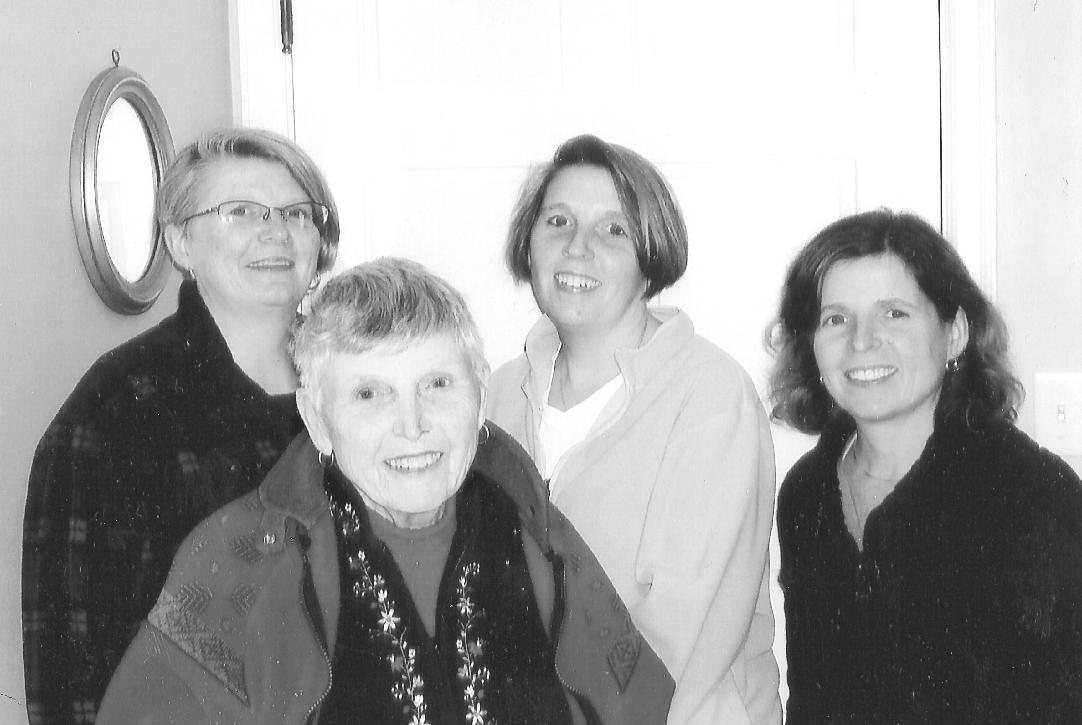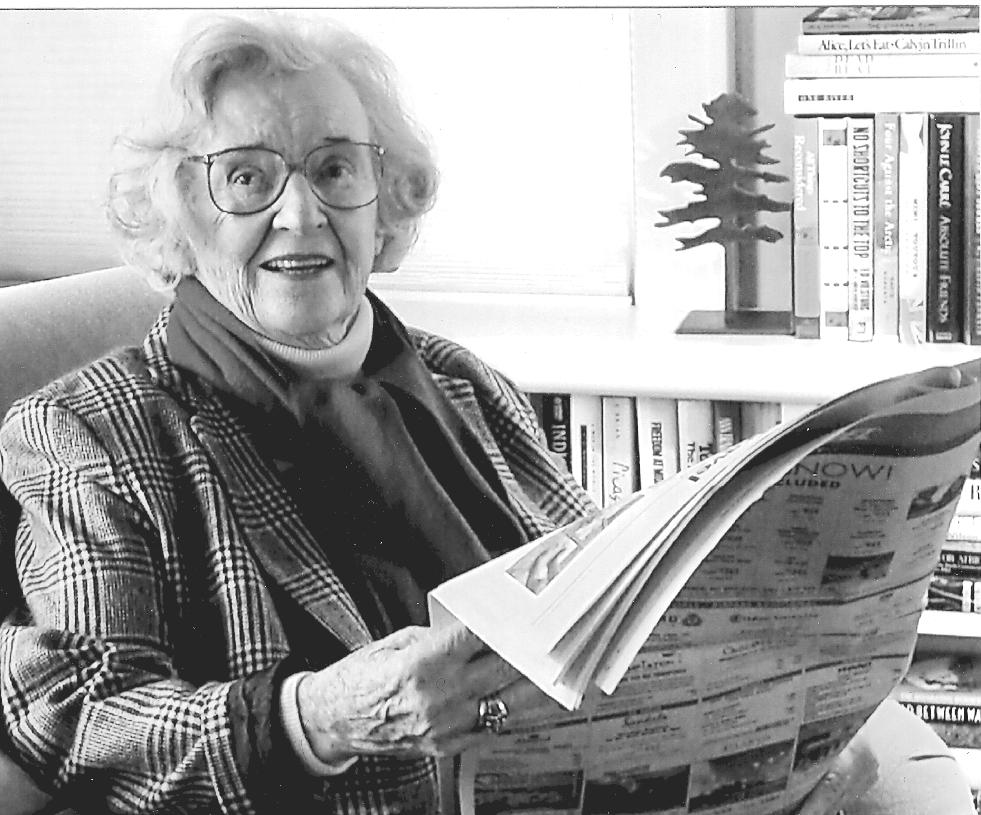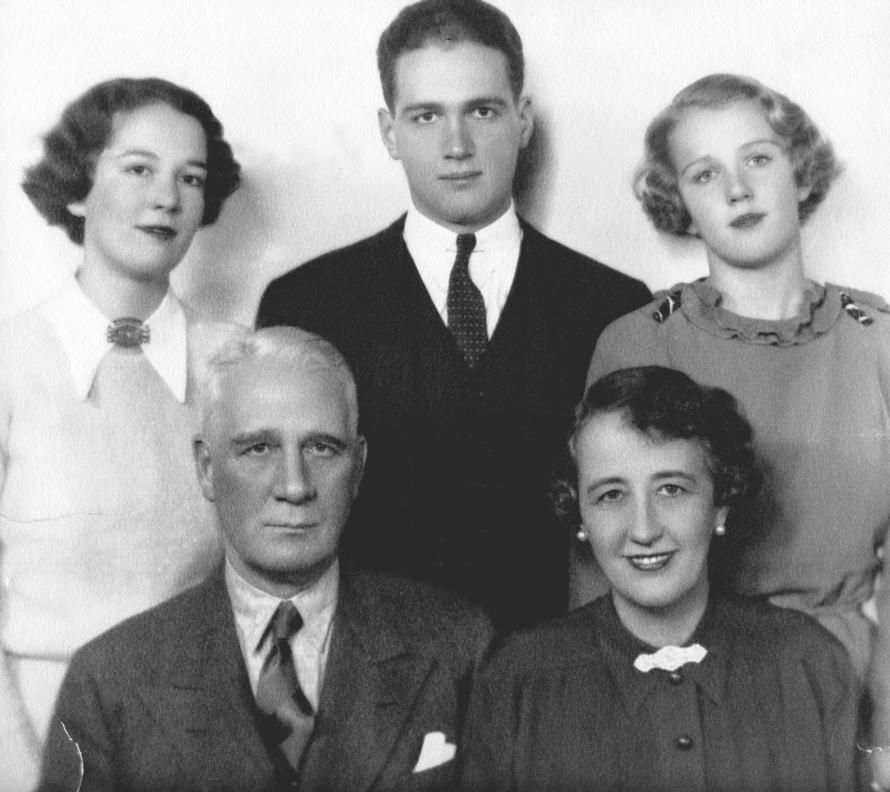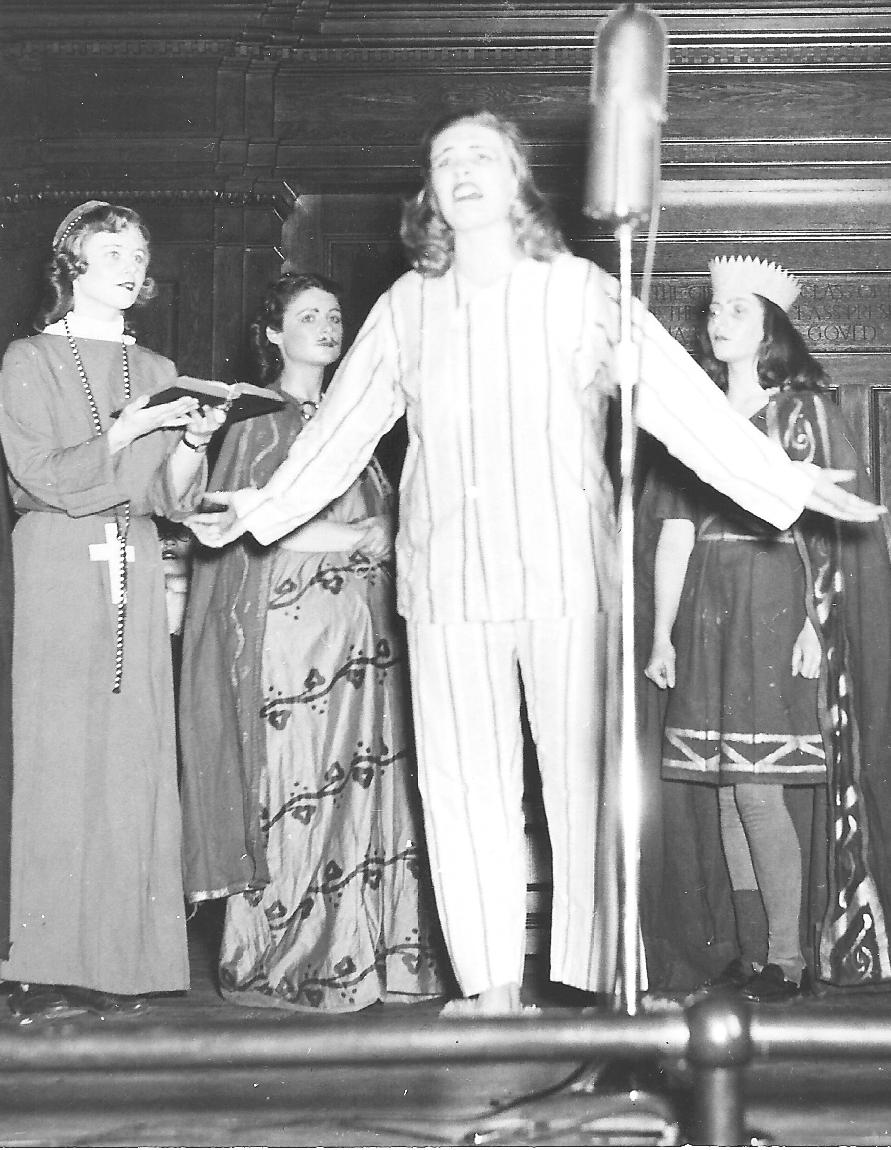
7 minute read
Perrin Brown lilly ’45
Perrin Lilly with youngest granddaughter Perrin Hutcheson
An Activist with her heart at home
Advertisement
Perrin Brown lilly ’45
interviewed by sophia lenarz-coy ’07 and cynthia borowski dilliard ’79 on march 1, 2008
“Minnesota people, especially in Saint Paul, are rooted here,” Perrin Brown Lilly began, adding with a laugh, “We don’t move around the way our East Coast friends do!”
When first asked to speak about her values and life experiences, Perrin seemed surprised that anyone would find her story interesting. A true Midwesterner, she says her values, like those of many others, have been shaped by decades surrounded by a close-knit family and service to the community. If she “has made any contribution,” she insists, it has always been through family and community.
Perrin’s father settled in Saint Paul in 1920 and her roots have remained here ever since. Today she resides in a stately house gracing a bluff overlooking the Mississippi River and downtown Saint Paul. The house reveals a spectacular view from its south-facing garden room, which Perrin and her husband added years ago. Sitting in the sun-filled room, looking at the lush indoor greenery, it was easy to forget the 30-degree weather outside.
In 1940 when Perrin was approaching graduation from Summit School, a private preparatory school for girls that later merged with Saint Paul Academy, it was not uncommon for Midwesterners to head east for college. Perrin recalls that four or five girls out of the 22 in her graduating class went on to Smith, including Perrin’s sister. Though her grandfather didn’t approve of women going to college, he liked Smith because it had “a sensible name,” unlike “fancy names like Wellesley or Vassar or Radcliffe.” There was no trip beforehand to look it over, since it was too far away. “If you got in, you went!”
Perrin has bittersweet memories of her time at Smith. With World War II already started and the United States entering the war in 1941, “It wasn’t exactly a happy, carefree place,” she recalls solemnly. “Girls were always hysterical because their boyfriends were being called [to war], or their brothers. Very emotional. So I don’t look upon those years as lots of fun … though, of course, there was fun.”
Perrin was quick to credit the college and her time there for both her rigorous education and her personal growth. She described Smith as “demanding then as it is now” and a “liberalizing place” where, for instance, she sat at the dinner table for the first time with an African American. The open-mindedness she experienced became the foundation for her later activism and community service.
An English major, Perrin was particularly challenged by the teachings of Mary Ellen Chase, the Smith professor who had the most significant influence on her. Though Ms. Chase required lots of hard work from her students, Perrin loved and appreciated that time with her professor. “She was very dramatic,” Perrin
explained. “She taught us to read every word. We had quizzes where we had to know each sentence, word by word. We learned that words are important.” With this training, along with classes in art history, Perrin left Smith with a deep love of art and literature.
Soon after graduation, Perrin married David Lilly and settled into life at home. With a smile she told us, “I can be a great enthusiast for the life of a homemaker without a professional career. I was lucky—I was comfortably supported by my husband.” But she was not isolated. It was through her involvement with the Junior League of Saint Paul that Perrin began to see what was needed in the community outside her home.
Politics was a big draw, and she became what she calls a “political junkie.” Her activism grew in the early ’80s when then–Lieutenant Governor Marlene Johnson brought a group of women together to support female candidates who were pro-choice. Contributors were asked to pledge $1,000 each to the new Minnesota Women’s Campaign Fund. At the time, women were not on equal par with men when it came to contributing to political campaigns. Perrin admits, “For the first time we were asking women to give their own money, or what they could get from their husbands, to support women’s campaigns. And believe me, a $1,000 commitment was big. It’s made a huge difference all these years, to be promoting women for offices around the state, at the legislature, and on to the U.S. House and Senate.”
The Women’s Campaign Fund was nonpartisan, Perrin explained, but “the bottom line was pro-choice. So of course in the early days we had a few Republican candidates who were running as pro-choice. But we all know what’s happened.” At this point, Perrin stops to editorialize. “Fewer and fewer women … or fewer and fewer anyone in the Republican Party … can be nominated if they’re pro-choice.”
Looking back on her involvement as a founding board member of the Minnesota Women’s Campaign Fund, Perrin is proud of having been part of what is still the most influential statewide women’s political action committee in the country. “That was a lot of fun,” she exclaimed with obvious pleasure. “It made me love the whole political thing!”
Not surprisingly, Perrin has also had close ties to Planned Parenthood. She served two terms on the board, and her passion for the topic is intertwined with her personal view on the importance of family. “The more I got into it, the more I was convinced that it’s a civil right for women to be able to choose when and when not to have a family,” she explained.
“I’m devastated by the thought of unwanted children.” She continues to work for this human right, now joined by her daughter Susanne Hutcheson, who has served as Planned Parenthood’s board chair. “One step forward and two steps back. They’re going to chip away at Roe v. Wade, but it will always be there. I’m confident of that.”
Asked about other groups that are close to her heart, she says with a self-deprecating laugh, “The list is endless and it makes me look like a dilettante.” Arts groups include the Ordway Center for the Performing Arts, Friends of the Saint Paul Public Library, Walker Art Center, COMPASS, and the former Chimera Theatre. Her association with Women Against Military Madness reflects an antiwar passion in her life, or as she puts it, “anti-Vietnam then, anti-Iraq now.” Perrin credits her husband’s active corporate and community life (Saint Paul Riverfront and the Ordway, among others) with opening other opportunities to her. In Washington, DC, where he served as governor of the Federal Reserve Board, she became involved with Common Cause, a nonprofit focused on holding elected leaders accountable to the public interest. Currently Perrin sits on the board of New Foundations, which helps recovering alcoholics.
“In a town the size of Saint Paul, you can really make a difference,” Perrin notes. “You’re not lost in the crowd. If you’re loyal and eager to do something for your hometown, you can be on a lot of boards. They all were or are significant in their own way, with various missions. It got me out there meeting all kinds of people whom I came to know as friends.”
Asked what she is most proud of, Perrin quickly responds with three simple words … raising a family. Her children (two sons and a daughter) and grandchildren are her greatest satisfaction. Happily for her they all live close by. “Being a homemaker and mother is the most creative thing you can do,” she explained. “I’ve loved it. At any age, kids and grandkids are fun and the best way to keep up with our fastmoving world.”
Her advice to recent Smith graduates echoes this sentiment. “Although the world of commerce sounds exciting, if you can afford it, don’t avoid choosing to be a full-time parent. It’s a very worthy profession!”t




